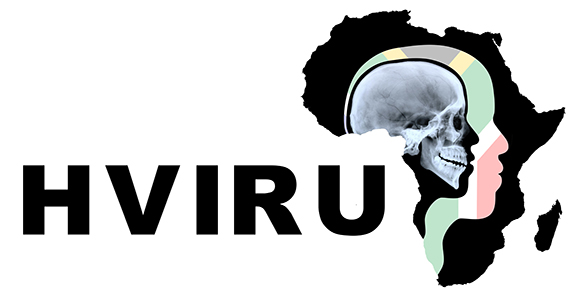Human Variation and Identification Research Unit (HVIRU)
Biological Anthropology has long been one of the mainstays of research in Anatomical Sciences. The diversity of living peoples in Southern Africa, together with our richly documented sequence of over 2 million years of fossil and archaeological materials, provides unique research opportunities that cannot be found elsewhere in the world. The aim of this research unit is to study modern human variation, how this variation came to be, and some of its practical applications (e.g., when it comes to human identification in forensic contexts or assessing modern growth processes). The results of this research will shed light on modern human adaptations, specifically with respect to patterns of health and disease. It bridges the gap between the study of fossil hominids and modern, living people and sheds light on where we are today – the modern human experience.
This research focuses mostly on skeletal remains and dentitions of currently living and past (anatomically modern) humans and their environmental contexts. Modern approaches to the study and interpretation of human variation and identification are followed, using sophisticated techniques for assessment of population and individual variation, sexual dimorphism, craniofacial identification and the role of taphonomic processes on human remains.
The research unit has five focus areas:
- Forensic anthropology
- Craniofacial identification
- Bioarchaeology
- Human variation
- Taphonomy
A component of service to the community is included under the umbrella of this unit in order to apply our research results. The situation in South Africa with regard to unidentified bodies remains dire, and therefore forensic anthropological consultations are done under the umbrella of the Human Identification Unit.
The School of Anatomical Sciences (SoAS) is ideally positioned to conduct the research as outlined above and to address some of these practical issues, as it has a deep history and standing in biological anthropological research both in the country and internationally. It also has excellent collections (for example the RA Dart Collection of Human Skeletons) and facilities.
Contact Prof M Steyn at maryna.steyn@wits.ac.za for more information.

